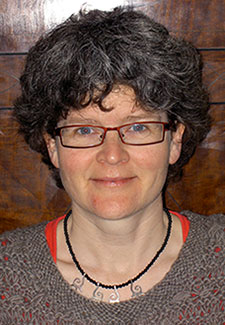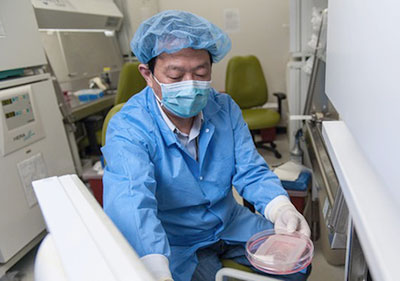
The battle against genetically modified food gained some ground in Vermont last week when the state Senate voted 28-2 to pass a bill requiring mandatory labeling of all GMO products.
Ronnie Cummins, the director of the Organic Consumers Association stated, "Vermont's landmark victory today will force food companies to either label GMOs in all states, or reformulate their products to be GMO-free in order to avoid stating 'this product was produced using genetic engineering' on their package." Vermont Governor Peter Shumlin is expected to sign the bill after it goes through the House, and if passed, the law will take effect July 1, 2016. This is a major win for anti-GMO activists, who need the momentum to tackle their next fight already hitting Congress. United States Rep. Mike Pompeo (R-Kansas) just introduced legislation that would nullify efforts to get GMO labeling on food products. The bill, deceptively named "Safe and Accurate Food Labeling", was drafted by the Republican congressman, and backed by Pompeo's biggest financial contributors -- the Grocery Manufacturers Association (GMA), with members like Monsanto and the conservative millionaire Koch brothers. Pompeo claims that if passed, the bill would create a federal standard, rather than the "patchwork quilt of food labeling requirements" that are in effect now. "That makes it enormously difficult to operate a food system. Some of the campaigns in some of these states aren't really to inform consumers but rather aimed at scaring them," Pompeo told Reuters. What he isn't revealing is that his proposal would block consumers from knowing what's in their food. Opponents of Pompeo's bill have dubbed it the "Deny Americans the Right-to-Know" or DARK act. It would specifically prohibit any mandatory labeling of bioengineered food, meaning that the 60 active GMO labeling bills currently being voted on in 23 different states (including Vermont) would all be obsolete under this new law. Activists say the GMA and biotech industry leaders fear the growing consumer distrust of genetically modified products, and are trying to steal away consumer's right to information. Non-Profit Calls Out Biotech Industry Manipulation Genewatch UK, a non-profit based in central England, has filed a complaint against the government for covering up the genetically modified food industry's influence over public policy.
According to an article in Sustainable Pulse, Genewatch UK made an official complaint to the Information Commissioner's Office on April 15. The group has been battling for 12 months to get these documents released to the public, which they claim reveal "extensive" contact between government officials and the country's GM lobby group, the Agricultural Biotechnology Council (ABC). Dr. Helen Wallace, the director of Genewatch UK wrote in the complaint, "These partial documents strongly suggest the government is colluding with the GM industry to manipulate the media, undermine access to GM-free-fed meat and dairy products and plot the return of GM crops to Britain." Among the list of grievances are missing attachments to emails, omitted notes from telephone conversations to Monsanto, and hidden meetings with ABC representatives. Wallace summarized, "Government discussions with the biotech industry regarding genetically modified crops and foods raise issues of significant public interest, including environmental protection. Genewatch UK therefore continues to believe that these documents should not be withheld." Big Ag -- Buying Oregon Vote? The "Big Six" agrochemical companies, with Monsanto leading the way, have donated a combined $455,000 to squash an anti-GMO ballot initiative in Jackson County, Oregon. The initiative, measure 15-119, "would ban any person from propagating, cultivating, raising or growing ‘genetically engineered' plants in Jackson County." A local Oregon group called GMO-Free Jackson County first filed petitions for this measure in Jan. 2013 with 6,700 signatures. Monsanto, DuPont Pioneer, Syngenta, Bayer, BASF, and Dow AgroSciences reached into those deep pockets, banding together to protect their investments. The companies gave their combined donation to Good Neighbor Farmers, a political action committee fighting against the measure. This gives the opposition committee an eight-to-one spending advantage, and leaves the initiative on shaky ground. Center for Food Safety's senior attorney, George Kimball, said, "This is a staggering amount of money for a local ordinance. For every vote they might get, Monsanto and its pals could afford to take each voter out for a fancy steak dinner." Voters will decide on May 20. Monsanto Pushes Back Against Herbicide Ban in Sri Lanka Less than one month after Sri Lankan officials said they were banning Monsanto's top-selling herbicide, Roundup, pressure from the influential agrochemical industry has convinced the government to change its tune. A 2013 study by the World Health Organization linked glyphosate, the main ingredient in Roundup, to an epidemic of chronic kidney disease afflicting tens of thousands of agricultural workers in Sri Lanka, Central America, and India [see Planet Waves coverage]. As a result of these findings, Sri Lankan president Mahinda Rajapksa issued a ban on the herbicide on March 12. Since then he has faced mounting political opposition from agrochemical corporations and pesticide committees who have a large stake in the country's agriculture -- 60 percent of tea, paddy, rubber, maize and vegetable cultivators use Roundup on their crops. The opposition claims there is no scientific evidence to prove the herbicide causes kidney disease. EcoWatch reports, "The government has received complaints from Monsanto, other agrochemical producers and Sri Lankan officials like Registrar of Pesticides, Dr. Anura Wisjesekara, all of which have led to halting the ban." First Successful Lab-Grown Vaginas Restore Sexual Function Scientists have successfully transplanted the first lab-grown vaginas into four teenage girls, according to a paper published in medical journal The Lancet last week. The young women possessed normal external genitalia, but lacked vaginas due to severe forms of Mayer-Rokitansky-Küster-Hauser syndrome (MRKH).
"There are other options out there, but they're not ideal," said Dr. Anthony Atala, director of the Wake Forest Institute for Regenerative Medicine in Winston-Salem, N.C., to NBC News. "For us, there is no better source than the patients' own cells." Using a scaffold of intestinal tissue from a pig (cleansed of its own cells, leaving behind collagen), Dr. Atala and his team coated one side of the tissue with epithelial cells. These are the cells that line the body's cavities, and were taken from a biopsy of each patient's outer genitalia. They coated the other side of the tissue scaffold with smooth muscle cells taken from each patient. The scaffold was then placed in an incubator and ‘fed', and the cells grew. After hand-sewing the tissue scaffold into a vagina shape to fit the individual patient, it was implanted into a surgically created cavity, and sutured to other reproductive organs. "The blood vessels and nerves come on their own," said Dr. Atala in a Wall Street Journal article. "The body's ability to regenerate is amazing if you put the right ingredients there." Tissue biopsies, MRIs and internal exams show that the vaginas are fully functioning and indistinguishable from native tissue. Perhaps even more importantly to the women themselves, all four have reported normal sexual function eight years after the procedure, including painless intercourse, lubrication and arousal.
Two of the women possess a uterus and might be able to get pregnant via intercourse; women born with MRKH often do not have a uterus. The condition can also affect kidney and spinal development, among other things. A definitive cause for MRKH is unknown. Although it may result from a combination of genetic and environmental influences, at least one study in rats has suggested a link between MRKH and phthalates. Phthalates are substances added to plastics to increase their flexibility, transparency, durability and longevity, and can be found in numerous consumer goods. In recent years, awareness has grown that phthalates easily leach into the environment, build up in human tissue, and act as endocrine disruptors; that is, they can negatively affect any system in the body controlled by hormones, thereby impacting health and physical development. A consumer-driven movement to ban phthalates from numerous items, particularly baby products, has been gaining momentum. Tomioka -- New Hope for Solar Energy A new 2,200 kilowatt mega solar power plant will be constructed in Tomioka, a town in northeastern Japan, sitting in the shadow of an evacuation advisory area 11 kilometers from the Fukushima Daiichi nuclear power plant. Sharp Corp said Thursday that it will begin construction in Dec. 2014 and commence with operations in June 2015, according to Jiji Press. The new plant is anticipated to supply power to 660 households. The town of Tomioka hopes the project will attract other businesses and inject new life into reconstruction efforts. The task of revitalizing the prefecture has been persistent ever since the earthquake, tsunami and nuclear disaster struck Japan in March 2011. Similar projects are moving forward in the prefecture, including the village of Iiatate. While the Japanese government shows no signs of releasing its dependence on nuclear, coal and gas energy sources, the project gives renewed hope that alternative energy has a future in Japan. Read the full story here. Six Months of Silence The Japanese government has been withholding data from the public for six months--data pertaining to estimated individual doses of radiation, according to The Asahi Shimbun. The data was released just after an evacuation ban was lifted on April 1, revealing dose estimates that exceed acceptable levels. In July 2012, the Cabinet Office's working team asked the National Institute of Radiological Sciences and the Japan Atomic Energy Agency to measure air dose rates and then estimate individual doses -- the amount of radiation a single person would be exposed to while living in a contaminated area. The agencies surveyed 43 locations surrounding the Fukushima prefecture; 24 of the sites were beyond the limit for annual exposure. A report was compiled by the two agencies in Oct. of last year, but wasn't disclosed until an evacuation order was lifted for the Miyakoji district. While the agencies had not intended to release the report until April 18, large public interest in the document and a request from The Asahi Shimbum expedited the process. Planet Waves Monsanto Watch (ISSN 1933-9135) is published each Monday evening in Kingston, New York by Planet Waves, Inc. Editor and Publisher: Eric Francis Coppolino. Business Manager: Chelsea Bottinnelli. Web Developer: Anatoly Ryzhenko. Research, Writing and Editing: Planet Waves is produced by a team consisting of Hillary Conary, Elizabeth Michaud, Amanda Painter, Amy Silver, Carol van Strum, Len Wallick and Chad Woodward. To unsubscribe, click here e Wiki | Friends | Editors | Contact Us Copyright © 2013 by Planet Waves, Inc. All Rights Reserved. Other copyrights may apply. Some images used under Fair Use or Share Alike attribution. |



